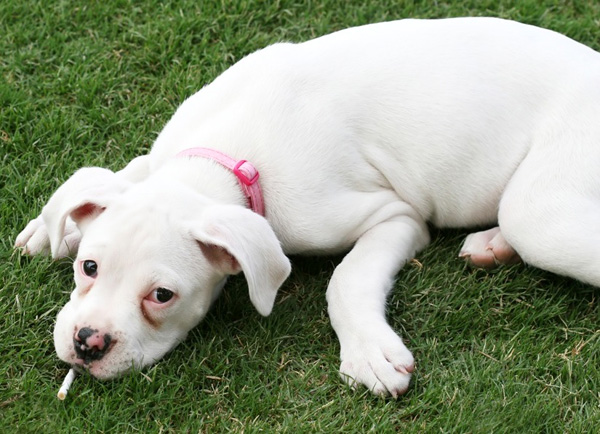Dr Sahil K Chalotra
All pet owners are aware that a range of common household substances and hazards can prove toxic to pets, even if they are not dangerous to humans. One of those substances is nicotine, which is of course found in cigarettes, cigars, tobacco, and a wide range of pharmaceutical aids to stop smoking.
Even if you do not smoke and smoking is banned in your household, there is still a very real possibility that pets such as cats and dogs may come into contact with products containing nicotine outside of the house. Discarded cigarette butts and nicotine gum can be found by pets when out on walks or playing in the neighborhood. Some pets are attracted to products such as chewing tobacco that contains flavors of honey, syrup and other sweets. The toxic level of nicotine in dogs is 5 mg/kg of body weight and 10 mg/kg is potentially lethal.
What products contain nicotine?
Nicotine is found in a variety of sources, primarily cigarettes, cigars, cigarette butts, snuff, chewing tobacco, nicotine gum, nicotine inhalers, nicotine nasal spray and nicotine insecticides.
How likely are pets to ingest nicotine willingly?
Fortunately, dogs and cats are unlikely to be overly keen to eat a cigarette or anything else containing actual tobacco, as tobacco is bitter tasting and highly unpalatable to pets. However, many stop-smoking aids such as those listed above are sweetened and flavored, giving them a potential appeal to your pets. Even if they do not mean to eat tobacco or ingest nicotine willingly, many dogs are quick to scavenge and pick things up from the floor, often eating first and tasting later, so there is the risk of nicotine ingestion by this means.
What to watch for?
The clinical signs of toxicity are dependent upon the amount and type of nicotine ingested relative to your dog’s body weight. The signs of toxicity are dose-dependent and generally begin within one hour of ingestion. Many dogs will vomit naturally after ingestion.
When large amounts are consumed, the effects can be life-threatening, but even small amounts can induce symptoms. Without treatment, nicotine toxicity can cause paralysis of the breathing muscles and your dog may die from an inability to breathe, sometimes within a few hours. If your pet exhibits any of the following symptoms, call your veterinarian.
* Hallucinations , Tremors, Stumbling and/or in coordination, Depression, Hyperactivity,Lethargy (in high doses), Fast breathing or difficulty breathing, Drooling, Dilated pupils, Vomiting, Diarrhea, Seizure
* Either bradycardia (slow heart rate), tachycardia (high heart rate) and/or cardiac arrhythmias
Treating nicotine poisoning
Take your pet to the vet as a matter of urgency, as fast treatment is required in cases of nicotine poisoning. If you know what nicotine-containing product your pet has consumed, take this along too, or at least the packaging, to allow your vet to calculate roughly how much nicotine your pet has ingested.
* Induction of vomiting if you witnessed the nicotine ingestion and the pet is alert. Ask your veterinarian for advice.
* Pumping the stomach (gastric lavage) may be recommended if large amounts were ingested.
* Repeated doses of activated charcoal are used to reduce further nicotine absorption.
* A ventilator to assist with breathing until the toxin can be cleared from their system for severely affected dogs.
* Intravenous fluids help to enhance elimination of the nicotine.
* Other supportive care as needed such as oxygen, seizure control medications such as diazepam (valium).
Generally, if the pet survives for the first four to six hours after ingestion, they are likely to make a full recovery. Nicotine is metabolized in the liver and passed out of the body through urination.
Home Care
If nicotine ingestion is witnessed, induction of vomiting may prevent the toxic signs of nicotine poisoning. Consult your veterinarian or local emergency facility for instructions regarding inducing vomiting at home. Once the signs of nicotine toxicity have developed, home treatment is not effective and immediate treatment by a veterinarian is encouraged.
Preventive Care
The best prevention is to eliminate the source of nicotine. Keep cigarettes, cigars, and all nicotine products out of the reach of your pets. This includes ashtrays, chewed nicotine gum and used nicotine patches. Remember, even ash and used products still have residual nicotine. The amount of ingestion required for toxicity is a lot higher than with the unused product, but the potential for toxicity is still there.


